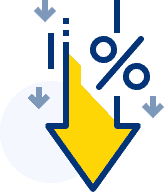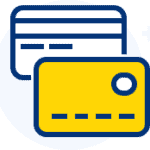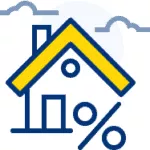Call Live Support


It is not at all uncommon for homeowners to refinance their mortgages. Mortgage refinance allows mortgage holders to secure more favourable terms for their mortgage. Considering that the percentage of mortgage holders who have paid off the mortgage on their principal residence is declining, this is going to become increasingly prevalent as the years continue.
There are numerous reasons why a mortgage holder would want to refinance your mortgage. Perhaps you’re one of the 21% of mortgage holders who don’t yet have a fixed interest rate for your mortgage, for instance.
It would be in your interest to lock in that rate now while you still can. Interest rates have been historically low in recent years.
Refinancing your mortgage isn’t as complicated as it might seem. There is quite a bit to know, however.
We’ve put together an exhaustive guide on a mortgage refinance, for as many different scenarios as we could think of, to help you with your mortgage refinance.
Before we get into how you refinance an existing mortgage, let’s take a moment and look at why you might want to. Understanding why people are flocking to their mortgage broker to discuss mortgage refinancing will also help you to understand why it could be a good idea to learn how to renegotiate your mortgage term.
As we discussed at the beginning, there’s been an explosion of people refinancing their mortgages. Why are so many looking into “how to refinance your mortgage?”
It’s because there can be many advantages to mortgage refinance.
Getting a better mortgage rate is the most popular reason for looking into mortgage refinance. It’s common for those who got their first mortgage during a time when a higher interest rate was more common. Refinancing your mortgage when interest rates fall allows you to renegotiate your terms to the current rate.
It can also allow you to secure lower monthly payments. This could be due to securing a lower interest rate, or you could lengthen the terms of your mortgage, which could result in a lower monthly payment as well.
Having a more steady and stable payment is another common reason for someone to seek out a mortgage refinance. This is most common if you sign up for a variable rate loan. Refinancing your mortgage could allow you to renegotiate to a fixed-rate mortgage, which would set your rate in stone in case interest rates rise.
Furthermore, a cash-out refinance is another reason that causes many to seek a mortgage refinance. One type of cash-out refinance lets you borrow against the equity in your home. This essentially transforms your home equity into a line of credit.
This same principle can allow you to consolidate debts by refinancing. You can borrow against the equity in your home to pay off other debts like credit cards, as mortgages tend to have lower interest rates than other debt. This can help you build good credit.
You also can pay off your mortgage over a longer span of time. This makes your home essentially a source of personal loans, and the amount that you borrow is simply added to the outstanding balance of your mortgage. It also means you can borrow against your home equity for things like home renovations, which might be difficult or time-consuming to secure a personal loan for.
This can also help you avoid prepayment charges. Mortgage lenders have every incentive to keep you paying for as long as possible, so they can collect their interest. They will sometimes charge you prepayment charges if you pay off too much of your mortgage too quickly.
Finally, if you happen to have more than one mortgage or home equity line of credit, mortgage refinancing can allow you to roll them all into one. When you do this, the line of credit HELOC doesn’t detract from your home equity. It also saves you from having to make multiple payments each month.
Call us today to speak to a licenced mortgage broker.
Now that we’ve discussed some of the reasons for mortgage refinancing, we’re going to show you how you can apply to refinance your mortgage for yourself. Following these steps will help you find the right mortgage refinance option for your particular needs.
Mortgage refinancing is an important and long-term decision. You should reflect a bit before approaching a mortgage lender to see if you have a good reason for doing so. Some good reasons for refinancing your mortgage include:
Whatever you decide, remember it is very important that you not borrow against your house to make purchases that depreciate over time. It is important, from a financial standpoint, to invest where you build equity.
Refinancing your mortgage should be beneficial to you. It often will result in a lower interest rate, but there are things you need to think about as well.
You should do some research into the current property values in your area. You should also investigate the current mortgage interest rates in your area.
If it seems like the market is steady and it is advantageous for you to refinance your mortgage, it can be a great idea. There are a lot of variables you need to consider, and some of them can be quite complicated. It might be a good idea to talk with a mortgage broker for advice and guidance through the process.
Your credit score is one of the most important factors in refinancing your mortgage. It’s the first thing that traditional mortgage lenders like a bank will look at when determining if you’re a good fit for a loan. They need to be able to determine if you’ll be able to make your monthly payments or if you’re going to be a risky investment.
Refinancing your mortgage with good credit is the best possible circumstance. If your credit has improved since you obtained your first mortgage, you’ll likely be able to get more favourable terms with your mortgage refinance.
If you have bad credit, it doesn’t mean you can’t refinance your home. There are many bad credit mortgage refinancing programs available to homeowners with bad credit.
You can refinance your mortgage with bad credit through alternative lenders (B lenders), where you can qualify based on your equity and your home.
If your income doesn’t qualify with a B lender, you will be able to qualify for a straight equity mortgage.
With a straight home equity loan, and a second mortgage you are approved based on the equity in your home only. The only requirement for getting approved is an appraisal confirming the value and condition of your home, along with the available equity.
If you are self-employed or have bad credit, don’t lose heart. There are plenty of alternative mortgage lenders who will be happy to hear your case and give you a chance if you’re a good fit. Or you could consider finding a co-signer that won’t be on the mortgage if that’s an option.
This is one reason that mortgage refinancing is so popular. Refinancing your mortgage doesn’t require good credit or a high income. All it requires is home equity.
Don’t let fear of bad credit or a checkered past deter you from taking advantage of a mortgage refinance if you’re in a good place where you’ll be able to keep up with it.
You should always know what your options are before making any binding financial agreements. You should also know all the different kinds of refinance mortgage options are available, so you’ll be able to make a more informed decision and find an arrangement that will work best for you.
A second mortgage is one refinancing arrangement that you can get with your home equity. This is just an additional mortgage on top of your existing one. You’ll need to be able to make sure that you can make both payments before taking out a second mortgage.
A home equity line of credit, or HELOC, acts like any other line of credit. Your home or property is just the assets that you’re borrowing against.
You can borrow up to the agreed-upon credit limit. When you’ve paid that back, you can borrow up to that credit limit again.
If you’ve made prepayments on your mortgage, you can potentially borrow against that, as well. You can also look into getting a reverse mortgage if you’re a homeowner over the age of 55.
You should also understand what different kinds of mortgages are out there, as well. There are variable-rate mortgages, to start. These fluctuate, depending on the current market rate.
Then there are fixed-rate mortgages. These remain constant, no matter how the market behaves. It will remain constant for the duration of your mortgage.
Finally, there are hybrid mortgages that are a combination of fixed and adjustable rates.
You also need to calculate all of the additional costs of refinancing a mortgage. Some additional expenses include:
Once you’ve tallied up all of these additional costs, you should have a clearer notion of whether or not refinancing your mortgage is advantageous for you or not. It’s also important to note that these fees will be deducted from the proceeds of the equity you take out, except for the appraisal cost which is required to be paid directly to the appraisal company.
Once you’ve determined that refinancing your mortgage is a good option for you, it’s time to begin filing the paperwork. If you’re approaching lenders directly, you’ll need to consult with each lending institution. They’ll also ask you to show proof of income and tax records.
It might be a good idea to consult with a mortgage broker at this stage, even if you are planning on filing your paperwork yourself. They’ll be able to tell you if your applications needs anything else included.
If you’ve come this far, a lending institution has assessed your loan application and determined that you were eligible to refinance your mortgage. Just because they’ve agreed to refinance your mortgage means that you have to accept their terms, though. You need to carefully assess the offer they’re giving you.
You need to carefully read over the terms of the refinancing agreement. Pay special attention to the interest rates and other costs that you don’t understand. You might be able to work with a mortgage expert to secure a lower interest rate or other favourable terms.
If you can reduce your interest rate by even as little as half a percentage point, you could theoretically cover the cost of any additional fees for refinancing your mortgage. You might also be able to secure a fixed rate so you won’t have to worry about market fluctuations.
As you can see, there’s a lot involved with refinancing your mortgage. But it’s not impossible either, especially when you know what you’re doing and what to look for.
You are not alone! There’s a whole movement of Canadian homeowners who are renegotiating their mortgages.
Working with a experienced mortgage broker will make your mortgage refinance as easy and as painless as possible. Contact us today with any questions or to set up a consultation!

We shop for the lowest rates from top Canadian mortgage lenders.

Fast mortgage refinancing quote, approval & closing.

Homeowners are approved regardless of their credit score.

All income amounts and types accepted for refinancing.

Equity based mortgage approvals for fast access to home equity.
Simple mortgage refinancing process in Canada. No income or credit requirements for accessing your home equity.

Check your rate, and monthly payment options.

Confirm property value and current mortgage details.

Fund your mortgage refinance in less than 48 hours.


We take pride in taking the time and effort to match up every individual homeowner and homebuyer with the best mortgage financing options and rates. With access to more than 200 participating mortgage lenders, there are mortgage solutions for all types of borrowers. We listen and understand your mortgage and real estate goals, and find the best mortgage terms tailored to your specific goals to save you thousands of dollars on your new mortgage.

(No Obligation)